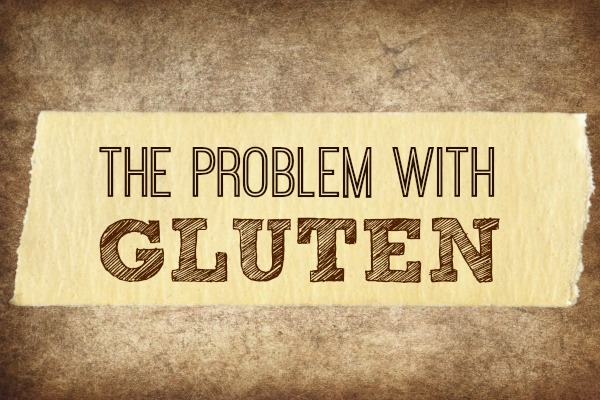
By now, we’ve all seen the countless articles on the dangers of gluten and the ever increasing shelves of gluten-free items at every store. You have probably asked yourself – is gluten really that bad for you?
Lets start at the beginning. What is gluten? Gluten, latin for “glue,” is the group of proteins found in wheat, barley, rye, triticale, malt, brewer’s yeast, wheat starch, and wheat derivatives like wheat berries, durum, semolina, spelt, and farina.
Why Is It Bad?
We know that the ingestion of gluten leads to damage in the small intestine of those who suffer from celiac disease. However, gluten is capable of causing illness even in people who do not have celiac disease.
Gluten causes gut inflammation in the majority of the population. This inflammation can cause the pores in the small intestine to expand – causing leaky gut syndrome. These expanded pores allow bacterial proteins and other toxic compounds to get in the blood stream, which can also lead to autoimmune attacks on the body. Another problem which may occur is that food may not be digested properly and nutrients are not absorbed fully, which can lead to nutrient deficiencies.
There is also evidence that links gluten sensitivity to a variety of health problems that include type 1 diabetes, allergies, schizophrenia, and autism spectrum disorders.
So, now you may be thinking – “I get it, I’ll just look for ‘gluten-free’ items in the grocery store.” – NOT so fast. Read on.
“Gluten Free” Does NOT Equal Healthy
While it’s true that many people will notice a significant improvement in their health by going “gluten-free”, it’s wise to point out that just because something is labeled as gluten free doesn’t necessarily mean it’s healthy.
Gluten-free eating is an extremely healthy way to eat when you rely on fruits, vegetables, pasture raised proteins and gluten-free whole grains AND avoid the overly processed gluten-free snack foods, pastas, breads and desserts. This is because the majority of gluten-free versions of traditional wheat-based foods are actually just junk food without gluten.
The Bottom Line
There is no denying the risk of gluten causing damage, regardless of the research or your personal feelings. There is also no risk to removing it from your diet – BUT there may be a large reward from doing so. So why not aim to eat as little gluten as possible? After all, most foods that contain gluten are not very nutrient dense and should not be eaten on a regular basis anyway.

